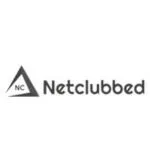
Top Dashboard Design Agencies
Dashboard design agencies specialize in creating intuitive, visually compelling dashboards that turn complex data into clear, actionable insights. These agencies combine UI/UX design expertise with data visualization tools to help businesses monitor performance, track KPIs, and make informed decisions. Whether for sales, marketing, operations, or finance, a well-designed dashboard provides a centralized view of key metrics in real time. These agencies often work with tools like Tableau, Power BI, Google Data Studio, or custom-built interfaces. Ideal for startups, enterprises, and SaaS platforms, dashboard design agencies ensure that your data not only looks good but also drives smarter business outcomes.
List of the Best Data Dashboard Design Services | Top Dashboard Design Agencies in the World

-
Employees: 0 to 10
-
Min. Project amount: $1,000+
-
Country: Noida, India
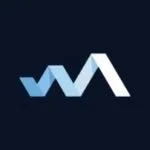
Flatirons
-
Employees: 10 to 49
-
Min. Project amount: $50,000+
-
Country: Boulder, CO

Eris360
-
Employees: 11 to 50
-
Min. Project amount: $10,000
-
Country: NY, USA
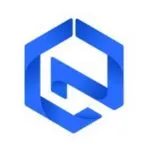
Cyber Nest
-
Employees: 11 to 50
-
Min. Project amount: $25-$49/hr
-
Country: NY, United States
-
Employees: 101 to 250
-
Min. Project amount: $10000
-
Country: Delaware, USA
-
Employees: 11 to 50
-
Min. Project amount: $1,000+
-
Country: Singapore
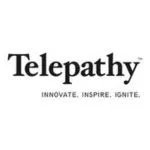
Telepathy Infotech
-
Employees: 51 to 100
-
Min. Project amount: $5,000+
-
Country: Casper, WY

Onex Software
-
Employees: 11 to 50
-
Min. Project amount: $10,000+
-
Country: İzmir, Türkiye
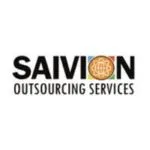
Saivion India
-
Employees: 11 to 50
-
Min. Project amount: $1,000+
-
Country: New Delhi, INDIA

SAT Microsystems
-
Employees: 251 to 500
-
Min. Project amount: $250,000+
-
Country: Jeddah, Saudi Arabia
1.What does a dashboard design agency do?
A dashboard design agency focuses on creating user-friendly, data-driven interfaces that present key metrics and performance indicators in a clear and meaningful way. By combining expertise in UI/UX design and data visualization, these agencies develop interactive dashboards that help businesses monitor performance, identify trends, and make informed decisions quickly and efficiently.
A dashboard design agency helps businesses transform raw data into meaningful, easy-to-understand visual interfaces that support informed decision-making. These dashboards are used to monitor, analyze, and optimize performance across various business functions.
Understanding Data-Driven Interfaces
The core of a dashboard design agency’s work lies in building data-driven interfaces. These are visual displays that present key performance indicators (KPIs), metrics, and trends in a consolidated view—allowing users to track business goals in real-time.
Combining UI/UX Design and Data Analytics
A successful dashboard must not only show accurate data but also be intuitive to use. These agencies combine:
UI (User Interface) Design: Creating a clean, visually engaging layout
UX (User Experience) Design: Ensuring the dashboard is easy to navigate and understand
Data Analytics: Structuring and interpreting data for optimal clarity and relevance
Creating Interactive and Actionable Dashboards
The goal is to build interactive dashboards that let users filter, sort, and drill down into data with ease. These dashboards support fast decision-making by offering real-time updates and customizable views.
Use Cases Across Industries
Dashboard design agencies serve businesses across sectors, creating dashboards for:
Sales and Marketing: Track leads, conversions, and ROI
Finance: Monitor revenue, expenses, and cash flow
Operations: View supply chain, logistics, and performance efficiency
HR: Track employee performance, attendance, and engagement
Conclusion
In summary, a dashboard design agency turns complex data into clear, interactive tools that help organizations make smarter decisions. They bring together design, analytics, and user experience to ensure that every dashboard is both functional and visually effective.
2.What types of dashboards can they design?
They design a wide range of dashboards including business intelligence dashboards, sales and marketing dashboards, financial dashboards, operational dashboards, and custom analytics platforms tailored to your specific needs.
Dashboard design agencies create a wide variety of dashboards tailored to different business needs, functions, and industries. Each dashboard is designed to display key data in a format that is visually clear, easy to navigate, and actionable.
1. Business Intelligence (BI) Dashboards
These dashboards provide a high-level overview of organizational performance. They integrate data from multiple sources to help decision-makers track trends, KPIs, and strategic goals in real time.
Common features:
Company-wide performance metrics
Cross-departmental data insights
Trend analysis and forecasting
2. Sales and Marketing Dashboards
Designed for marketing teams, sales managers, and executives, these dashboards track campaign performance, conversion rates, lead generation, and revenue growth.
Common features:
Sales funnels and pipeline visualization
Campaign ROI tracking
Customer acquisition metrics
3. Financial Dashboards
Financial dashboards focus on monitoring budgets, cash flow, expenses, and profitability. They help finance teams ensure fiscal health and make data-backed budgeting decisions.
Common features:
Revenue and expense tracking
Profit margins and financial KPIs
Budget vs. actual comparisons
4. Operational Dashboards
Used to track day-to-day business activities, operational dashboards provide real-time insights into processes like production, logistics, inventory, or customer service.
Common features:
Task and workflow monitoring
Supply chain and inventory tracking
Incident and resolution logs
5. HR and People Analytics Dashboards
These dashboards are designed for human resources and talent management teams to monitor employee engagement, hiring, retention, and performance.
Common features:
Recruitment funnel
Employee satisfaction and turnover rates
Attendance and productivity metrics
6. Custom Dashboards and Analytics Platforms
Many agencies also develop custom dashboards based on unique requirements, industry-specific metrics, or specialized data environments. These are tailored for niche use cases such as SaaS platforms, healthcare analytics, e-commerce, and more.
Conclusion
Whether you need to track performance, financial health, operations, or employee engagement, dashboard design agencies can build tailored solutions that turn your data into meaningful, real-time insights
3.What Tools Do Dashboard Design Agencies Use?
Dashboard design agencies use a range of powerful tools to create visually appealing, interactive, and data-rich dashboards. The choice of tools depends on the project’s complexity, data sources, integration needs, and the client’s preferences.
1. Business Intelligence (BI) Platforms
These are the most widely used tools for data visualization and business analytics:
Tableau: Known for its powerful data visualization features and user-friendly drag-and-drop interface. Ideal for interactive dashboards and advanced analytics.
Power BI: Microsoft’s robust BI tool that integrates easily with other Microsoft products and supports real-time data analytics.
Looker (Google Cloud): A cloud-based tool best suited for complex, large-scale data modeling and embedded analytics.
2. Free and Cloud-Based Tools
- Google Data Studio: A free, cloud-based tool that connects to Google Analytics, Google Sheets, and other sources. Great for marketing and SEO dashboards.
Metabase: An open-source platform that’s easy to set up and good for internal dashboards and self-service BI.
3. Front-End and Custom Development Tools
For fully customized dashboards, agencies may build interfaces using front-end frameworks and APIs:
React, Vue.js, Angular: Popular JavaScript frameworks used to build dynamic, responsive dashboard UIs.
D3.js & Chart.js: Libraries used for creating custom and interactive data visualizations.
APIs & Databases: To connect to data sources like SQL databases, CRMs, ERPs, or third-party analytics platforms.
4. Integration and Automation Tools
These tools help connect and automate data flows between platforms:
Zapier, Make (Integromat): For automating tasks and syncing data between apps.
Airtable: A no-code database that can act as both a data source and lightweight dashboard.
Conclusion
Dashboard design agencies select tools based on your business goals, data ecosystem, and user needs. Whether using off-the-shelf BI platforms or building fully custom interfaces, the right tools ensure your data is delivered in a clear, useful, and actionable format.
4.How Do I Choose the Right Dashboard Design Agency?
Look for agencies with a strong portfolio, client testimonials, industry experience, and a clear understanding of your business goals. They should be skilled in both data visualization and user experience design.
Choosing the right dashboard design agency is crucial for ensuring that the final product aligns with your business needs, provides actionable insights, and delivers an exceptional user experience. Here are some key factors to consider when making your decision.
1. Review Their Portfolio
Look for agencies that have a strong portfolio showcasing diverse dashboard designs. This should include examples of both the visual aesthetics and functionality of their past work. Check if their designs have met the specific needs of businesses similar to yours and if they effectively convey data in an engaging and clear way.
2. Check Client Testimonials and Case Studies
Client testimonials and detailed case studies are great indicators of an agency’s expertise and reliability. Look for feedback from clients in your industry or with similar dashboard requirements. Case studies will give you insight into the agency’s problem-solving skills, approach to design, and the outcomes they helped their clients achieve.
3. Consider Industry Experience
Choose an agency with industry experience in your field or sector. An agency familiar with the nuances of your business will be able to create dashboards that truly align with your goals and the metrics that matter most. They will understand the context behind your data and ensure your dashboard design supports key decision-making processes.
4. Evaluate Their Design and Data Visualization Expertise
The agency should have strong skills in both user experience (UX) design and data visualization. A well-designed dashboard is not only visually appealing but also user-friendly and effective at communicating insights. Ensure they have a clear process for creating dashboards that are easy to navigate, interactive, and capable of displaying complex data clearly.
5. Understand Their Development Process and Technology
Get clarity on the agency’s development process, tools, and technologies. A good agency should be able to explain how they will integrate data from your sources, how they ensure the dashboards are scalable, and which tools or platforms they will use (e.g., Tableau, Power BI, or custom solutions). Ensure their approach is flexible and tailored to your needs.
6. Communication and Support
Choose an agency that offers clear communication and ongoing support. They should be responsive and open to feedback throughout the design process. Additionally, make sure they offer post-launch support for maintenance, troubleshooting, and updates.
Conclusion
Selecting the right dashboard design agency is essential for creating a tool that adds real value to your business. By reviewing their portfolio, industry experience, and expertise in UX and data visualization, you can find an agency that aligns with your goals and helps you make data-driven decisions with ease





